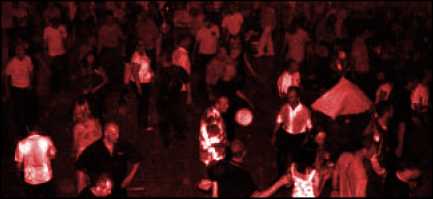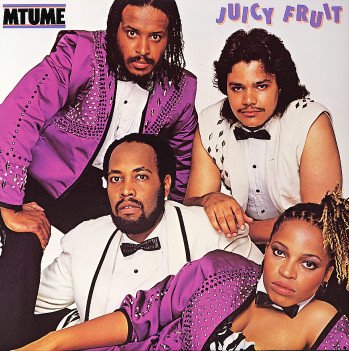Top 50 Movie Recommendations (listed in no particular order)
--'The Saddest Music in the World' Canada during the Great Depression? Filmed with hand-held cameras, the lenses glossed strangely with vaseline? 90% b/w, 10% color? A comedy about the impact of guilt and sadness on the conscious mind, as experienced through music? Capra-style diologue? ...forget all that; just watch the hockey-buzzer-mediated duel between the Simese floutest and the Mexican funeral band. My girlfriend and I fell in love while watching this film. Also great with the sound off.
--'The Ruling Class - Criterion Collection' Huge movie! It asks: What would happen if you dropped Jesus Christ and Jack the Ripper into English aristocracy? Possibly the most accomplished piece of "cult cinema" ever constructed. Also, the C of E Bishop is a scream!
--'The Last Days of Disco' Don't watch this unless you can watch it more than once. Notoriously hated by non-WASPs. An exploration into the ways in which people do (and, more importantly, don't) change. Brilliant dialogue.
Waiting For Guffman 'Waiting for Guffman' My favorite movie. Snobby, but surprizingly not anti-Christian. The extra footage is a must!
--'Network'
--'The Cruise' My favorite documentary. Quasi-prophetic in its anticipation of 9/11. A wonderful tour of NYC, a disturbed-genius autodidact, and idol worship at its urban grandest. Apart from the world trade center stuff, the "Grid Plan" speech, and the confession on Brooklyn Bridge are amazing.
--'The Ice Storm' A strange and particular context (1970s New Canaan, CT) from which to explore the universality of human psycho-sexual tragedy, both in the adult and (as it develops) in the child. An eerily all-star cast of kid actors. This movie has a low anthropology, but gives birth to a genuinely redemptive hope, born in wake of God's wrath portrayed as an ice storm, requiring an innocent death.
--'How To Get Ahead in Advertising - Criterion Collection' Boil!
--'Stardust Memories' Favorite moive from my favorite film maker. Rampling's portrayal of insanity is really horrifying. Yet the movie is beautiful aesthetically, full of hilarious character studies, some of his funniest jokes, and a deeply serious underbelly.
--'Being There' My Grandmother is an extra in this movie; she walks by right before Peter Sellers gets hit by the car. Even if she weren't in it, I would love this film.
--'True Stories'
--'The Addiction' Probably the only vampire movie that uses blood-sucking as a metaphor for sin. Explored from the perspective of a D.Phil student of Existentialism who is bitten by a vampire in the East Village one night. Plus a soundtrack by Onyx/Cypress Hill. Features Christopher Walken. The ending is explicitly Christian, and protestant at that!
--'The American Astronaut'
--'La Dolce Vita'
--'Thief' Michael Mann's early masterpiece. He would later try to recapture its magic in Heat, almost move for move. Plus the Tuesday Weld is indeed the best part of all! Her lengthy interaction with Cann in the diner is perfect.
--'The Ninth Configuration' By the guy who wrote The Exorcist. Features a segment depicting an astronaut worshipping the crucified Jesus on the surface of the moon!
--'The Swimmer'
--'Wings of Desire'
--'The Wife' A beautifully made, scathing criticism of the New Age. Julie Hagarty is one of my favorite actresses.
--'The 5,000 Fingers of Dr. T'
--'Rushmore - Criterion Collection'
--'The Brothers Quay Collection: Ten Astonishing Short Films 1984-1993'
--'Metropolitan' The best Foreign movie ever made about the American upper crust, New York's 400. "I don't think you have to have read a book in order to have an opinion on it!"
--'Jules Verne 3 Pack Collection (3pc)'
--'Flirting With Disaster (Collector's Edition)'
--'Marnie' The dated quality of 1960s Freudian psycho-analysis provides some of my favorite subject matter. The girl, Tippi, plus Hitchcock's ever present obsession with sex (e.g., horse-riding) brood eerily just under the surface of a strangley explored thesis: women need men to rescue them from themselves via Freudian psychoanalysis.
--'Little Onik'
--'The Cabinet of Dr. Caligari' More of the same Freudian stuff mentioned above. This movie describes the Psychiatrist to be God himself. All is revealed in a horrifying, expressionistic dream sequence depicting a therapeutic break-through.
--'Kicking and Screaming (Baumbach)'
--'Manhunter (Director's Cut, Limited Edition Set)' Tom Noonan plays the scariest serial killer in movie history! Michael Mann's direction is perfect, ever concerning itself with the inner issues of the mind and heart, plus characteristic synth-wash soundtrack and Miami Vice cameos. This is his best movie!
--'Who's Afraid of Virginia Woolf?' The educated are not necessarily friendly. The smartest man I've ever known converted after watching this movie.
--'Bad Lieutenant' Disturbing, but overtly Christian. This movie reveals the offensive side of forgiveness.
--'Hurlyburly (New Line Platinum Series)' I always wondered what uneducated (in the Classical sense) conversation among intelligent people would sound like. This movie answered that question for me. (Worth watching alongside of 'The Player' and 'The Anniversary Party'.
--'Alien - The Director's Cut (Collector's Edition)'
--'The Player (Special Edition) (New Line Platinum Series)'
--'Withnail and I - Criterion Collection' The gay uncle is hilarious!
--'Rize' - Christian "clown-dancers" fight gang violence in the LA ghetto (a documentary). You've never seen the human body move like this before!
--'Black Orpheus - Criterion Collection'
--'The King of Kings - Criterion Collection'
--'Fitzcarraldo' Famous for the on-screen deaths this movie incured. Whether or not they (the deaths) be real or rumored, this movie definitely features a ferry being hoisted over a mountain in the middle of the Amazon rain forest using weird pullies, which is a very cool thing to do in a film.
--'Palindromes' A simple story about a 12-year-old Jewish girl, but played by 10 different actresses, including a 300 pound black women, who only appears for 10 minutes in the middle.
--'After Hours'
--'Faust'
--'Together' Covers a lot of the same ground explored in The Ice Storm, and by Todd Solendz, but in Sweden in the mid-70s. It has a contrived happy-ending, but I like the fact that it does.
--'Paris, Texas'
--'Blood and Roses' Heavily stylized version of LeFanu's "Carmilla", history's most famous story of vampire lesbians. I can't decide which of the heroines is sexier! A personal fave.
--'The Abominable Dr. Phibes' Incredible 60s aesthetic style with a weird Old Testament tale of terror incorporated nicely into the good graces of one Vincent Price. As far as I can remember, he is the only actor in the movie, other than a group of robotic New Orleans jazz musicians. This movie is cool, but not really very smart. A must!
--'Darby O'Gill and the Little People' This one features surreal, midget footage, a banshee, and fantastic Disney live-action story-telling. Works sufficiently with the sound off.
--'Tron (20th Anniversary Collector's Edition)' The left hand did not know what the right hand was doing here. This movie anticipated the future CGI animation, and is gorgeous to look at. It reflects a confused Disney at low-ebb, taking a risk.
--'Xanadu' Zeus sends one of his nine Muse daughters, ONJ, to inspire an artist to open a Roller-skate night club. Gene Kelly dances to this rediculous plot in his final, embarrasing role. Visually stunning, cinematic magic, ...of a very dumb variety. A pathetic, but honest mention.
--'Sideways'
--'Clash of the Titans' The place where Harryhausen's special effects of the 60s comes together with the unforgetable 80s, as descibed in ancient Greece. Sir Lawrence Olivier, U. Andress as Aphrodite, Harry Hamlin from LA Law, all together finally!
--'The Big Blue (Director's Cut)' Hard to defend, though it's unlike any other movie. Rosanne Arquette is another fave!
--'Britannia Hospital' This is the only movie on this list that I have never watched. It's supposed to be really good.
--'The Boy in the Plastic Bubble' Perfect as existential metaphor.
 Holl (from "The Reconstruction of Moratlity")--
Holl (from "The Reconstruction of Moratlity")--




 Photo: Northern Soul Dancers
Photo: Northern Soul Dancers













